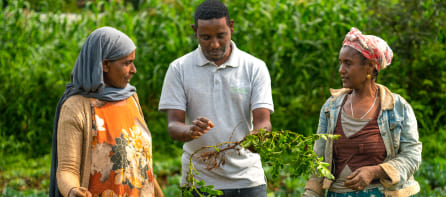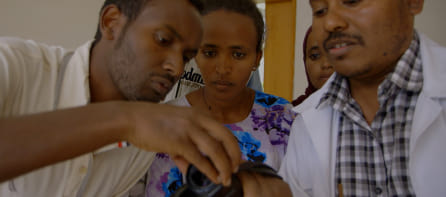Digital Green’s work in India is implemented through Digital Green Trust, which collaborates with government-supported extension service agents (EAs), who provide farmers with critical information and resources. EAs are trained to use scalable, cost-effective technologies that make their work in rural communities more effective, efficient, and impactful. This approach helps rural farmers access and share locally relevant information to boost the value of their harvests. Designing our technologies with an eye for inclusivity and climate resilience, we plan to build on our successes by providing millions more EAs and small-scale farmers with the tools they need to improve their lives and communities.
Digital Green works with the Indian government’s National Rural Livelihoods Mission (NRLM) and JEEViKA, the Bihar Rural Livelihoods Promotion Society. We also partner with regional bureaus of agriculture in Andhra Pradesh, Bihar, Jharkhand, Odisha, and Telangana. These relationships ensure the durability and scalability of our projects—helping us engage with women farmers at the household level and increasing buy-in for our approach to encouraging livelihood diversification, sustainable agriculture, conservation practices, and other forms of support for rural communities.


